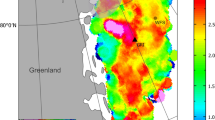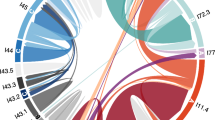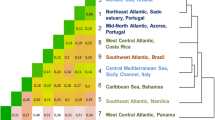Abstract
Codas, which are patterned series of clicks, were recorded from female and immature sperm whales (Physeter macrocephalus) in a number of locations around the South Pacific Ocean and in the Caribbean Sea. Using K-means cluster analysis, 3,644 codas were categorized based on the number of clicks and their patterning. There were 30 resulting types of coda. The numbers of codas of the different types recorded were used to construct repertoires for each recording session, day, group of whales, place, area, and ocean. Strong group-specific dialects, which seem to persist over periods of years, were apparent, overlaid on weaker geographical variation. Significant differences in repertoire were found between the Caribbean and the Pacific Ocean. Sperm whales now join killer whales (Orcinus orca) as the only cetacean species in which dialects (differences in vocal repertoire among neighboring, potentially interacting groups) have been found.
Similar content being viewed by others
Author information
Authors and Affiliations
Additional information
Received: 13 June 1996 / Accepted after revision: 19 January 1997
Rights and permissions
About this article
Cite this article
Weilgart, L., Whitehead, H. Group-specific dialects and geographical variation in coda repertoire in South Pacific sperm whales. Behav Ecol Sociobiol 40, 277–285 (1997). https://doi.org/10.1007/s002650050343
Issue Date:
DOI: https://doi.org/10.1007/s002650050343




